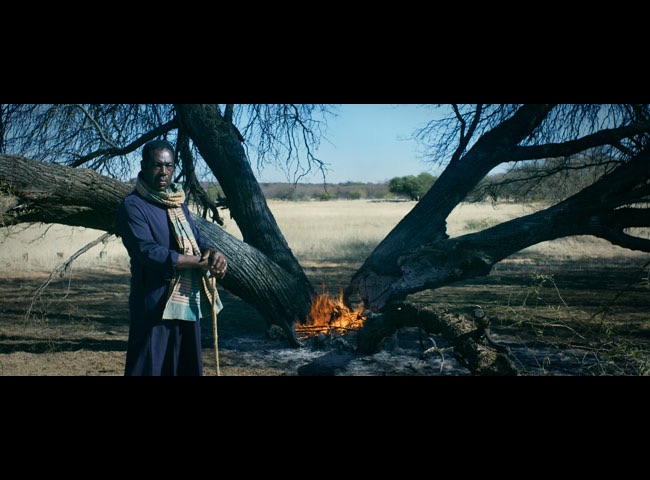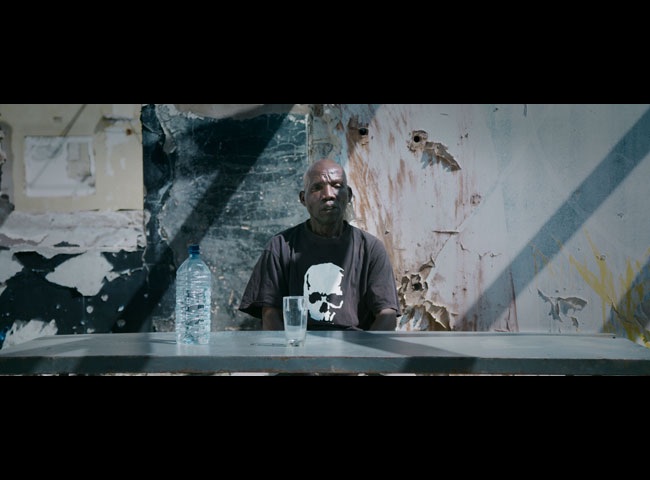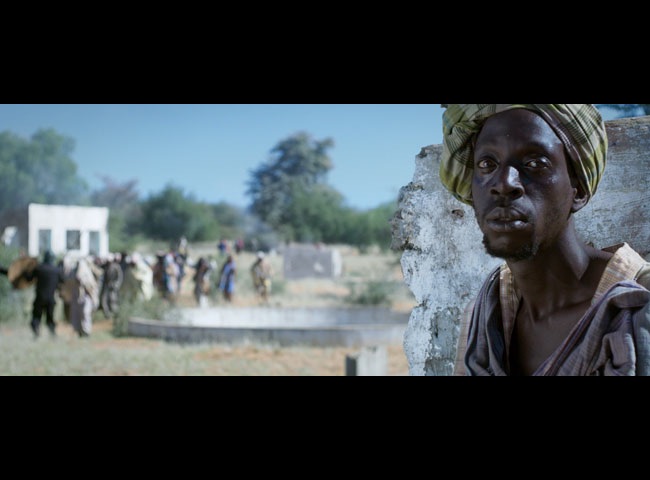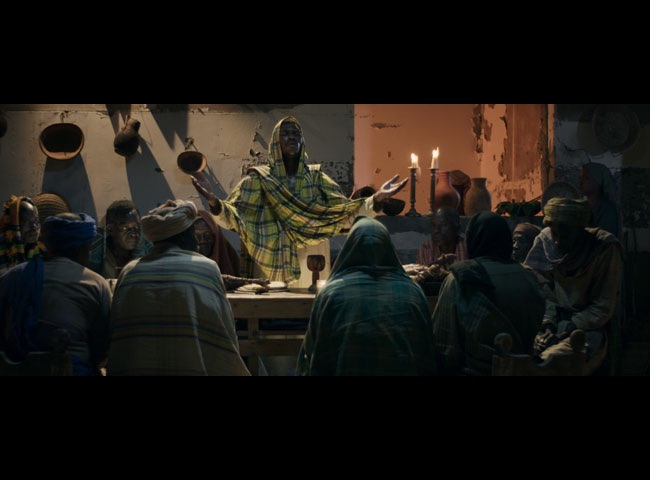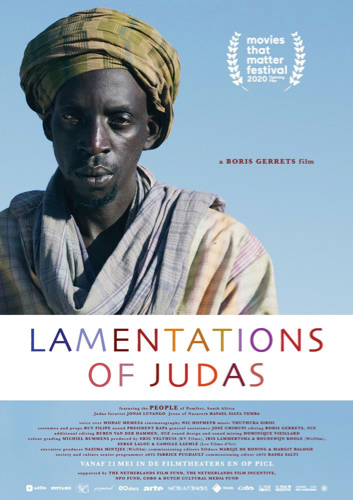Les Lamentations de Judas
-
Réalisé par Boris Gerrets • Écrit par Boris Gerrets
-
Pays-Bas, France • 2020 • 98 minutes • Couleur
- Réalisation :
Boris Gerrets - Écriture :
Boris Gerrets - Image :
Nicolaas Hofmeyr - Son :
President Kapa, Dominique Vieillard - Montage :
Boris Gerrets - Musique originale :
Thuthuka Sibisi
- Production (structure) :
Les Films d'Ici, Serge Lalou - Coproduction :
Camille Laemlé, Witfilm, Iris Lammertsma, Kvfilms (Kranenborg Velthuis Films) - Diffuseur :
ARTE - La Lucarne - Participation :
CoBO Fonds, IKON, Netherlands Film Fund, NPO Fund - Ayant droit :
Les Films d'Ici, Serge Lalou
- N° ISAN :
non renseigné
Résumé
Dans le village de Pomfret, en Afrique du Sud, survit une petite communauté d’anciens combattants angolais, recrutés après 1975 par le régime de l'apartheid pour combattre le gouvernement communiste de leur pays tout juste indépendant. Surnommés "les terribles" pendant la guerre civile de vingt ans qui a suivi, les anciens du bataillon 32, installés depuis quelques années à la lisière d’une mine d’amiante, ont reçu l'ordre de quitter les lieux. N'ayant nulle part où aller, ces exilés tombés du mauvais côté de l'histoire s'accrochent à leur coin de brousse aux maisons vides. Ils acceptent de tourner avec le réalisateur un film sur Judas Iscariote, l'apôtre qui a trahi le Christ. En parallèle, ils livrent peu à peu des bribes de leur passé violent.
Dans la beauté dépouillée de ce village fantôme, semblable à une Antiquité postapocalyptique, le monologue poétique de Judas et les récits de guerre tissent un dialogue méditatif entre le mythe et l'histoire. L'héritage complexe du colonialisme, la légitimité impossible des guerres, la responsabilité de l'individu pris dans les soubresauts collectifs, la possibilité du pardon et de l'oubli : autant de thèmes qui s'incarnent de façon poignante dans les voix et les corps de ces soldats désarmés.
"A group of old men in an abandoned asbestos mining town on the edge of the Kalahari Desert resist evacuation. They have no place to go because they were once notorious as soldiers of the infamous South African Battalion 32, also known as “The Terrible Ones”. Both perpetrators and victims of history, they become actors in the biblical story of Judas Iscariot in Boris Gerrets’ equally disturbing and fascinating cinematic legacy.
The spectacle under a blazing sun confronts the men, who live in abject poverty, with their unresolved past. Many of them had been forcibly recruited by the FNLA and UNITA resistance movements in the Angolan War of Independence against Portugal. After the communist MPLA took power, they found themselves as mercenaries fighting alongside white South Africans against their own people and finally defending the Apartheid regime in the colonial struggle in Namibia and the South African townships. On the fringes of the surreal film location between the decaying buildings of the old mining town, they speak for the first time about their life stories, talk about betrayal, guilt and remorse. Having been steamrolled by global politics, turned into undesirables, exiles, forgotten, suppressed and broken men, they finally become visible again as human beings in front of the camera."
(Christoph Terhechte - DOK Leipzig)
Mot(s)-clé(s) thématique(s)
Sélections et distinctions
- 2021 • DocsBarcelona • Barcelone (Espagne) • Sélection officielle Panorama
- 2020 • Movies that Matter • Amsterdam (Pays-Bas) • Film d'ouverture
- 2020 • DOK Leipzig - International Leipzig Festival for Documentary and Animated Film • Leipzig (Allemagne) • Camera Lucida - Hors compétition
Comment avoir accès au film ?
- Sortie en salle
-
Édition DVD
- Il n'existe pas d'édition DVD à notre connaissance
-
Accès VOD
- Il n'existe pas d'accès en VOD à notre connaissance
- Distribution
- Aide sur les moyens d'accéder à un film
